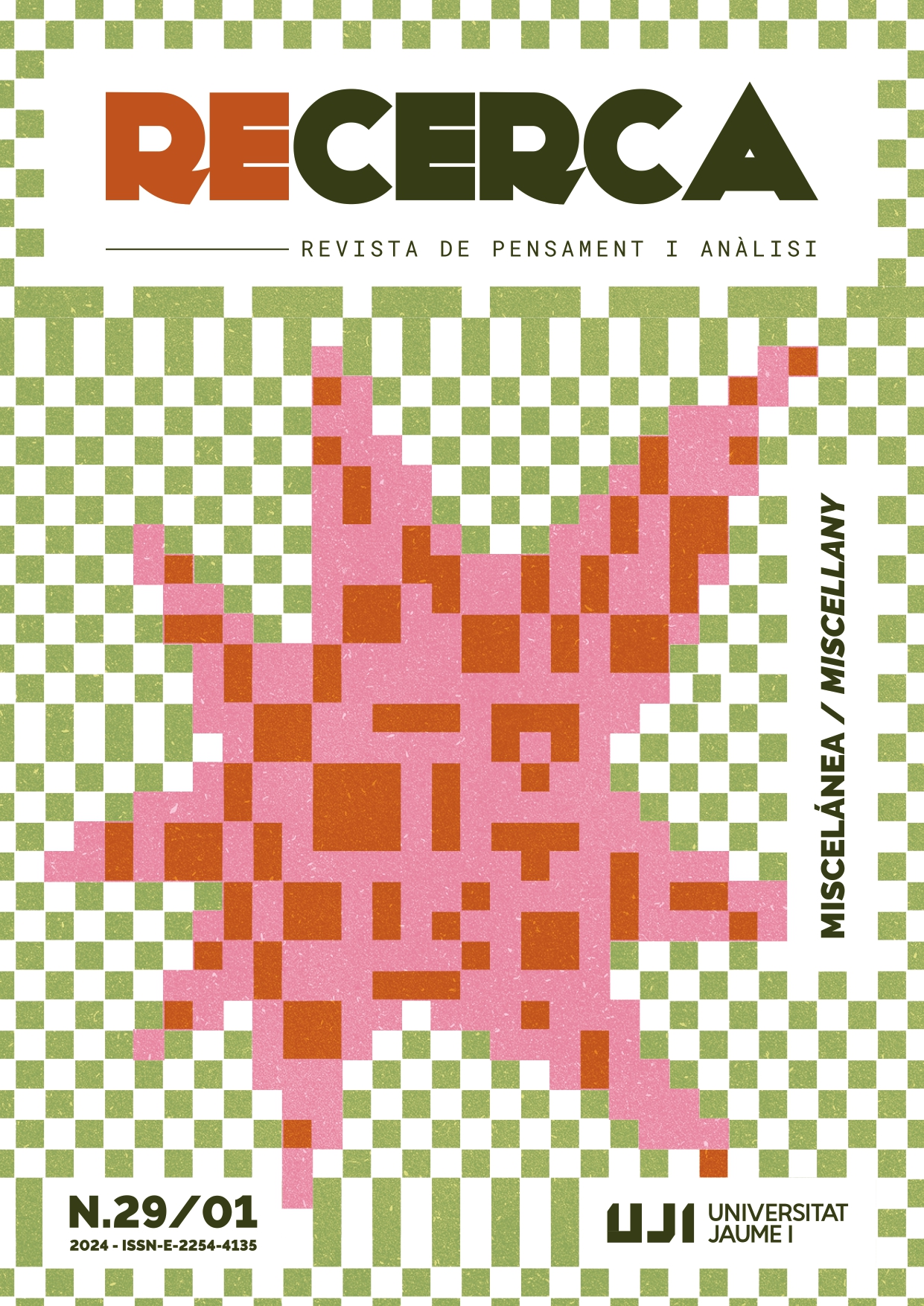Rule of law and legal interventionism The problem of authoritarianism in Michel Foucault's analysis of ordoliberalism
Main Article Content
Abstract
This article discusses how the conception of the rule of law is presented in the Foucauldian analysis of ordoliberalism. The argument defends the need to link the ideas of ordoliberals regarding the state with the political thought of Carl Schmitt in order to show its authoritarian character. Research following the Foucauldian analysis has emphasized the fact that Foucault did not pay special attention to the non-democratic dimension of neoliberalism. At the same time, however, they insist on disassociating the neoliberal state from an authoritarian conception of the exercise of power. The article argues that if the ordoliberal positions are placed in the light of the debates surrounding Weimar democracy, the authoritarian impulse inherent in its conception of the rule of law is unavoidable. This is done in three steps: first, I present the ordoliberal theory of the state analyzed by Foucault; then, I show the dependence of this theory on the Schmittian conception of the strong state; and, finally, I point out how the absence of a substantive reference to Schmitt leads Wendy Brown or Christian Laval and Pierre Dardot to dismiss the authoritarian component of the neoliberal undermining of democracy.
Downloads
Article Details
References
Blengino, Luis Félix (2018). El pensamiento político de Michel Foucault. Madrid: Guillermo Escolar.
Böhm, Franz (1937). Ordnung der Wirtschaft. Berlin: Kohlhammer.
Bonefeld, Werner (2017). The Strong State and the Free Economy. London: Rowman&Littlefield.
Bonefeld, Werner y Del Arco, Jorge (2022). Foucault ante la crítica de la economía política: una entrevista con Werner Bonefeld. Dorsal. Revista de Estudios Foucaultianos, 12, 131-141.
Bribe, Keith (2007). Strategies of Economic Order: German economic discourse, 1750-1950. Cambridge: Cambridge University Press.
Brown, Wendy (2015). El pueblo sin atributos: La secreta revolución del neoliberalismo. Barcelona: Malpaso.
Castro, Rodrigo (2021). La invención de Foucault como «pensador neoliberal». Una respuesta a Michael C. Behrent y Daniel Zamora. En Castro, Rodrigo y Chamorro, Emmanuel. Para una crítica del neoliberalismo: Foucault y Nacimiento de la biopolítica (119-155). Madrid: Lengua de Trapo.
Chamayou, Grégoire (2022). La sociedad ingobernable: una genealogía el liberalismo autoritario. Madrid: Akal.
Eucken, Walter (1992). The Foundations of Economics. Berlin: Springer.
Foucault, Michel (2009). Nacimiento de la biopolítica. Curso del Collège de France (1978-1979). Madrid: Akal.
Hayek, Friedrich A. (2000). Camino de servidumbre. Madrid: Alianza.
Lagasnerie, Geoffroy de (2020). Foucault against Neoliberalism? London: Rowman&Littlefield.
Laval, Christian y Dardot, Pierre (2013). La nueva razón del mundo: ensayo sobre la sociedad neoliberal. Barcelona: Gedisa.
López Álvarez, Pablo (2006). La guerra infinita, el enigma de la sublevación. Michel Foucault y la interpretación bélica de la política. En Sánchez Durá, Nicolás (coord.). La guerra (161-184). Valencia: Pre-Textos.
López Álvarez, Pablo (2010a). Behemoth o la Ilustración devastada. Reconsiderando a Franz Neumann. Daimon: Revista Internacional de filosofía, extra 3, 207-216.
López Álvarez, Pablo (2010b). Biopolítica, liberalismo y neoliberalismo: acción política y gestión de la vida en el último Foucault. En Arribas Verdugo, Sonia, Cano Cuenca, Germán y Ullarte Tellería, Javier (coords.). Hacer vivir, dejar morir: Biopolítica y capitalismo (39-62). Madrid: Catarata.
López Álvarez, Pablo (2016). Sigue cierta algarabía. Foucault, el neoliberalismo y nosotros. En Castro Orellana, Rodrigo y Salinas Araya, Adán (ed.). La actualidad de Michel Foucault (231-254). Madrid: Escolar y Mayo.
López Álvarez, Pablo (2020). Democracia, poder, derecho: Franz Neumann y la tragedia de la libertad moderna. En Navarrete, Roberto y Zazo, Eduardo. Ante la catástrofe: pensadores judíos del siglo XX (143-169). Barcelona: Herder.
López Álvarez, Pablo (2021). El último umbral. Foucault y el neoliberalismo. Moreno Pestaña, José Luis. Ir a clase con Foucault (183-210). Madrid: Siglo XXI.
Röpke, Wilhelm (2009). The Social Crisis of Our Time. Chicago: Chicago University Press.
Rüstow, Alexander (1980). Freedom and Domination: A Historical Critique of Civilization. Princeton: Princeton University Press.
Schmitt, Carl (1971). Legalidad y legitimidad. Madrid: Aguilar.
Schmitt, Carl (1983). La defensa de la Constitución. Madrid: Tecnos.
Schmitt, Carl (2009). Teología política. Madrid: Trotta.
Slobodian, Quinn (2018). Globalists: The End of Empire and the Birth of Neoliberalism. Cambridge: Harvard University Press.
Villacañas, José Luis (2016). Una apología cínica de la revolución neoliberal: sobre La última lección de Michel Foucault. Dorsal. Revista de Estudios Foucaultianos, 1, 109-118.
Villacañas, José Luis (2019). L’ultima neutralizzazione. L’ordoliberalismo e Foucault. Filosofia política, 33(1), 103-122.
Villacañas, José Luis (2020). Neoliberalismo como teología política. Barcelona: Ned.
Zamora, Daniel y Behrent, Michael C. (eds.) (2016). Foucault and Neoliberalism. Cambridge: Polity.


